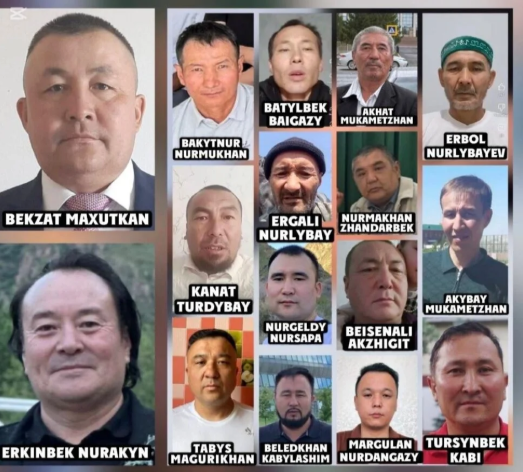Another Assault on Religious Liberty in Rwanda
- info775148
- 26. 6.
- Minut čtení: 4
A new regulation poses a threat to the existence of groups that view their founders and leaders as divine incarnations or messianic figures.
June 26, 2025
Following a tragic incident in Kenya where a preacher promoted extreme fasting, resulting in the deaths of more than 400 followers, several African countries are exploiting this event to tighten government control over religion. This trend was already underway prior to the incident in Kenya.
Rwanda presents a particularly alarming example of this attack on religious freedom. In 2024, as part of a campaign that originally began in 2018, around 13,000 independent religious organizations were inspected, and 7,700 of them were shut down.
Rwandan authorities claim that a church or religious place of worship can be closed if it fails to pass one of four tests. One of the tests examines building and safety features. While this may seem reasonable, we at “Bitter Winter” frequently receive reports that unfounded safety arguments are being used as pretexts to harass unpopular minorities, even in countries usually regarded as supportive of religious freedom, such as Islamic centers in Italy.
The other three criteria are highly problematic. Leaders of faith-based organizations must now possess academic qualifications. These leaders are required to have a degree in religious studies from an accredited higher education institution or any other degree paired with a valid certificate in religious studies or a related field from a recognized institution. The rationale for these academic qualifications is purportedly to ensure that religious leaders are competent to interpret and deliver faith-related messages to their congregations. If applied in the United States or in many other democratic countries, these criteria would lead to the closure of the majority of places of worship for religious minorities. While the Catholic Church and some mainline Protestant churches mandate that their parish priests or pastors earn academic degrees, most other religious organizations do not have such requirements.
The second criterion stipulates that churches and other religious organizations must submit their by-laws to the government, obtain a “collaboration letter” from the relevant district authorities, and file an “action plan.” This action plan must encompass not only evangelistic activities but also community initiatives. Clearly, district authorities could decline to issue “collaboration letters” for any number of reasons, potentially resulting in the shutdown of places of worship for organizations they dislike.
The third criterion requires that each organization submit a statement of faith detailing its doctrines. This document is deemed essential for assessing whether the teachings align with “national values” and laws. Although authorities explain that Article 37 of the Constitution of Rwanda guarantees religious liberty, it is not extended to everyone; only those religions and movements that “do not contradict national values and standards” as defined by the government are included. This represents a limited and superficial religious liberty, akin to the guarantees found in the Chinese Constitution, which permits “normal” religious activities only, reserving the right for the Communist Party to define what is considered “normal.”
In March 2025, a new regulation mandated that all religious organizations submit an annual report disclosing all sources of funding, pay a yearly “service fee” of US$1,400 (a substantial amount for struggling rural congregations), and refrain from political activities and comments. Religious groups that fail to comply may be disbanded through a simple administrative order by the government, bypassing any legal trial.
On June 17, the government published new “Guidelines on Religious Preaching That Align with Rwandan Values.” These guidelines prohibit religious organizations from engaging in practices, prayers, or statements where a religious leader is “excessively praised, glorified, or idolized, often beyond reason or fact.” Specific prohibitions include presenting leaders and founders as “god-sent,” “Alpha and Omega,” or as capable of performing miracles. All preaching must adhere to “Rwandan cultural norms.”
Although it is not explicitly stated, the regulation seems to refer to living religious leaders. If it did not, Christianity and Buddhism would necessitate bans, given that they assert their founders were divine figures and performed miracles. The term “Alpha and Omega” (“the beginning and the end” in Greek) is a title given to Jesus Christ in the Book of Revelation. Regarding living leaders as messianic or divine figures is not uncommon either, particularly in Asia. Tibetan Buddhists regard the Dalai Lama as an incarnation of Avalokitesvara, the Bodhisattva of Compassion, while several other Buddhist traditions see their leaders as living Buddhas. Many new religious movements in Asia acknowledge their living founders as messianic figures or incarnations of God. Should we conclude that all such beliefs are banned in Rwanda?
It is noteworthy that Rwanda, similar to Kenya, has explicitly cited Japan and France as models of “best practices” for repressing “cults,” as detailed in a document from the Kenyan Senate.
Rwanda has signed and ratified the United Nations International Covenant on Civil and Political Rights (ICCPR). By criticizing Japan, which has laws permitting the dissolution of religions posing a threat to “public welfare,” the United Nations Human Rights Committee has clarified that religious organizations cannot be punished for violating social norms or the opinions of the majority.
Threatening dissolution in Rwanda for not conforming to “Rwandan cultural norms” blatantly violates the ICCPR, as does prohibiting the recognition of founders and leaders as divine incarnations, a common belief and practice in countless religions.
Source: bitterwinter.org












Komentáře